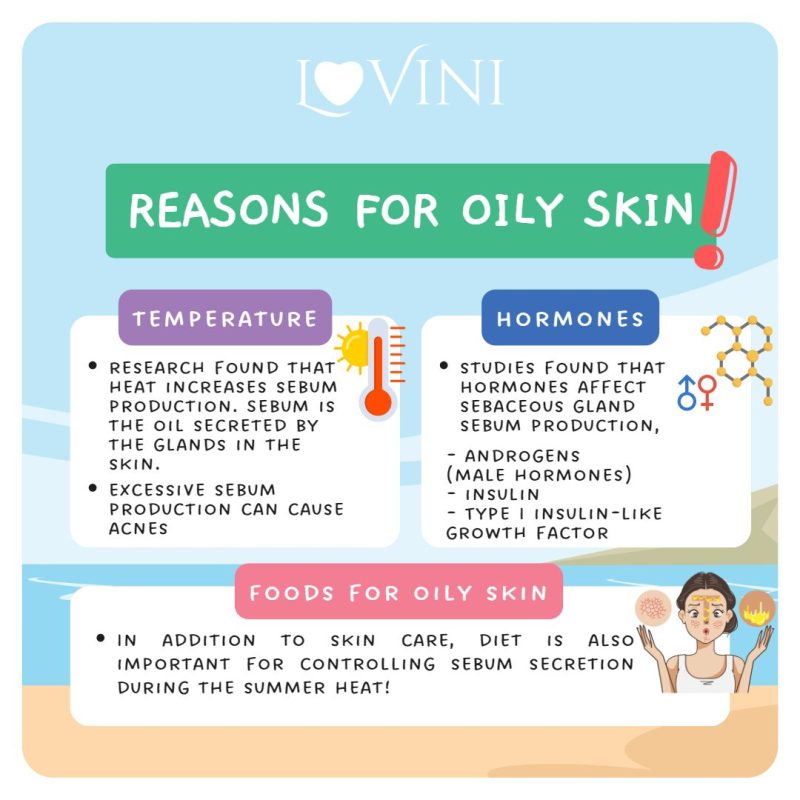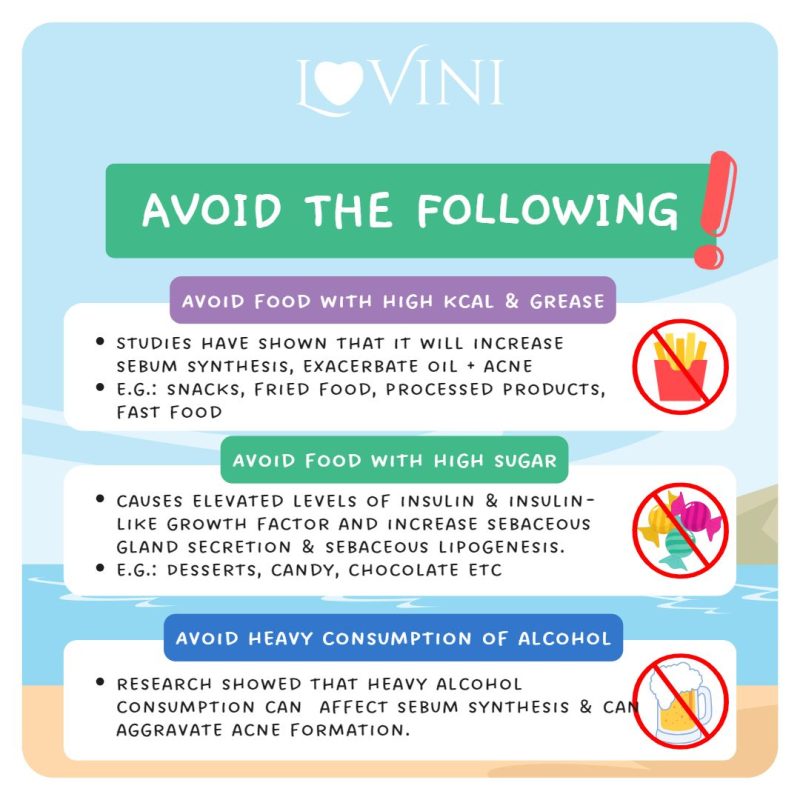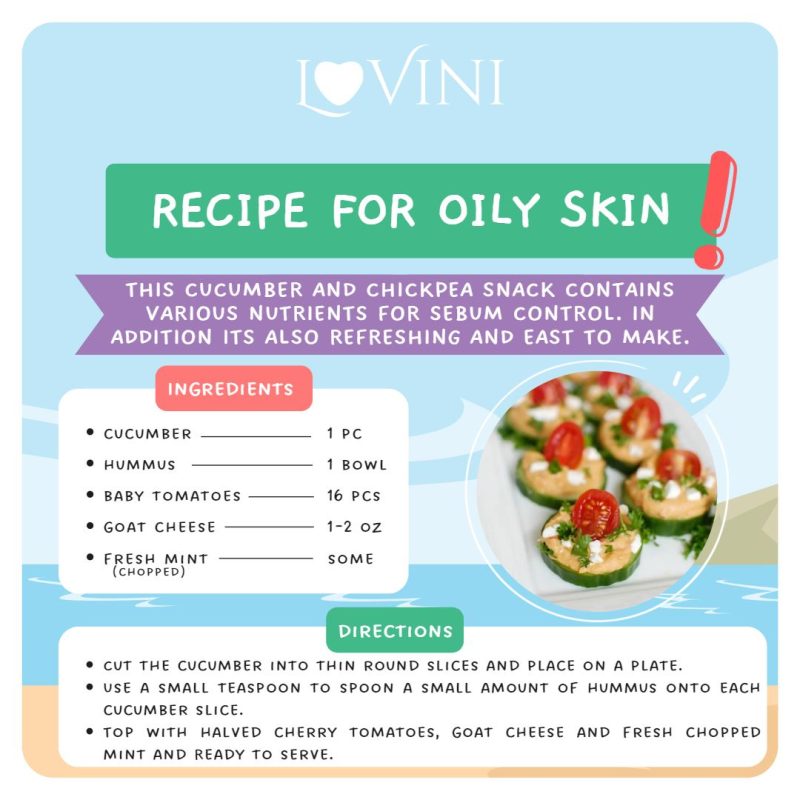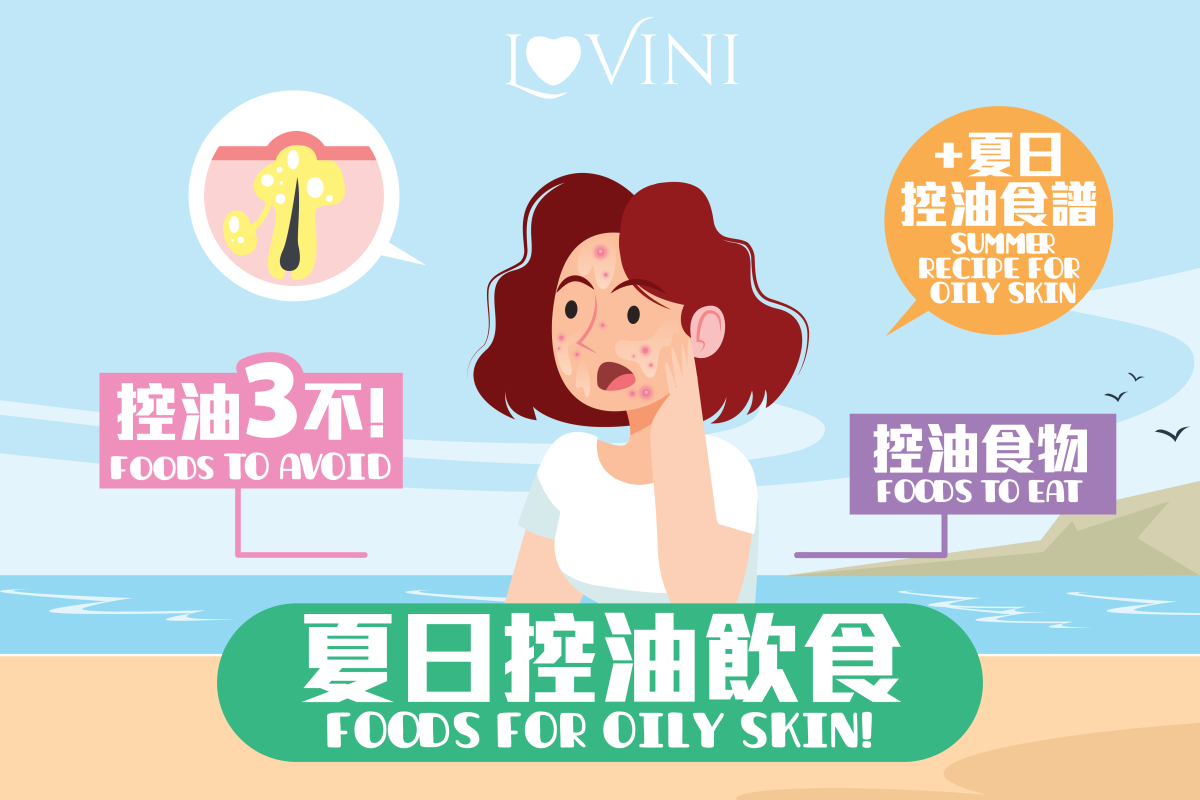Summer is finally here! With warmer temperatures and increased humidity, sebum secretion can become a problem for some as it can lead to clogged pores, acne, and other skin issues. Apart from keeping your skin clean and well-moisturized, our daily diet can definitely help in controlling skin sebum secretion! Continue reading to find out more!
Reasons for Oily Skin

- Temperature
– Research found that heat increases sebum production. Sebum is the oil secreted by the glands in the skin. Excessive sebum production can cause acnes. - Hormones
– Studies found that Hormones affect sebaceous gland sebum production including the following- Androgens (Male Hormones)
- Insulin
- Type I Insulin-like Growth Factor
Avoid the Following in your Daily Diet!

- High Kcal & Grease
– Studies have shown that it will increase sebum synthesis, exacerbate oil and acnes.
– E.g.: Snacks, Fried Food, Processed Products, Fast Food - High Sugar
– High levels of sugar causes elevated levels of insulin & insulin-like growth factor, and increases sebaceous gland secretion & sebaceous lipogenesis.
– E.g.: Desserts, Candy, Chocolate etc. - Heavy Consumption of Alcohol
– Research showed that heavy alcohol consumption can affect sebum synthesis and can aggravate acne formation.
Choose Food Below!

- Omega-3
Omega-3 can balance hormones, helps inhibit type 1 insulin-like growth factor, reduce oil secretion and improve acnes
E.g.: Salmon, Tuna, Flaxseeds, Sunflower seeds - Vitamin B
Vitamin b helps regulate skin sebum control and metabolism, improves skin hydration.
E.g.: Chickpeas, Soybeans, Asparagus, Spinach, Bananas, Apples - Vitamin A and Carotenoids
Vitamin A can regulate skin metabolism & reduce sebum secretion while Carotenoids can be converted to vitamin A in our body.
E.g.: Liver, Dark Green Vegetables, Orange-Yellow Fruits and Vegetables.
Recipe for Oily Skin!
This cucumber and chickpea snack contains various nutrients for sebum control. in addition its also refreshing and east to make.

References:
1. Melnik B. Dietary intervention in acne. Dermatoendocrinolgy. 2012;4:20–32. doi: 10.4161/derm.19828.
2.13. Berra B., Rizzo A.M. Glycemic index, glycemic load: New evidence for a link with acne. J. Am. Coll. Nutr. 2009;28:450S–454S.
3.Riyanto P., Subchan P., Lelyana R. Advantage of soybean isoflavone as antiandrogen on acne vulgaris. Dermatoendocrinology. 2015;7:e1063751. doi: 10.1080/19381980.2015.1063751.
4.39. Higgins E., du Vivier A. Alcohol intake and other skin disorders. Clin. Dermatol. 1999;17:437–441. doi: 10.1016/S0738-081X(99)00038-3.

